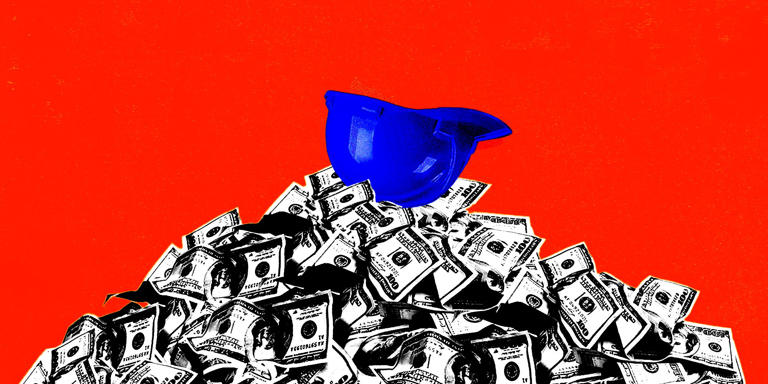Alyssa DeOliveira’s journey epitomizes the shifting landscape of career choices and societal perceptions in contemporary America. Raised with the traditional expectation of pursuing a prestigious white-collar profession, DeOliveira dutifully explored various academic paths, including nursing and accounting, before settling on criminal justice. However, despite securing a position at a law firm, her daily routine became monotonous, confined to the confines of office life. Faced with the prospect of spending her days in front of a computer screen, DeOliveira yearned for a more dynamic and people-oriented career.
Her decision to transition into blue-collar work marked a significant departure from the expectations ingrained in her upbringing. Opting for a role as a train conductor on Boston’s T’s green line, DeOliveira embraced a career that allowed her to interact directly with people and engage in hands-on tasks. Her work schedule, characterized by early morning shifts and late-night duties, underscores the versatility and unpredictability of blue-collar professions. Despite the unconventional hours, DeOliveira’s passion for her job shines through, fueled by the satisfaction derived from making tangible contributions and the financial stability afforded by her new role.
Beyond personal fulfillment, DeOliveira’s career shift reflects broader societal trends reshaping the labor market. Blue-collar occupations, once perceived as less prestigious or intellectually demanding, are experiencing a resurgence in popularity and respectability. This shift is fueled by various factors, including the increasing demand for skilled tradespeople, competitive salaries, and attractive benefits packages offered by companies like Walmart and UPS.
Moreover, the rise of social media platforms such as TikTok has played a pivotal role in reshaping perceptions of blue-collar work. Influencers showcasing their daily routines and showcasing their expertise have garnered admiration and interest, highlighting the craftsmanship and value inherent in these professions. This exposure has contributed to a growing appreciation for the skills and contributions of blue-collar workers, challenging stereotypes and promoting greater diversity in career choices.
The COVID-19 pandemic served as a catalyst for reevaluating the societal value of essential workers, many of whom are employed in blue-collar sectors. As frontline workers, these individuals played a crucial role in sustaining essential services and supporting communities during challenging times. The recognition of their contributions has led to calls for improved wages, benefits, and working conditions, further elevating the status of blue-collar occupations.
Despite these positive developments, challenges persist, including lingering stigmas and wage disparities compared to white-collar professions. However, the increasing demand for blue-collar workers and the evolving perceptions of these occupations signal a promising future for individuals seeking meaningful employment and financial stability. As attitudes continue to shift and societal values evolve, blue-collar work is reclaiming its status as a respected and viable career choice for individuals across diverse backgrounds and aspirations.
